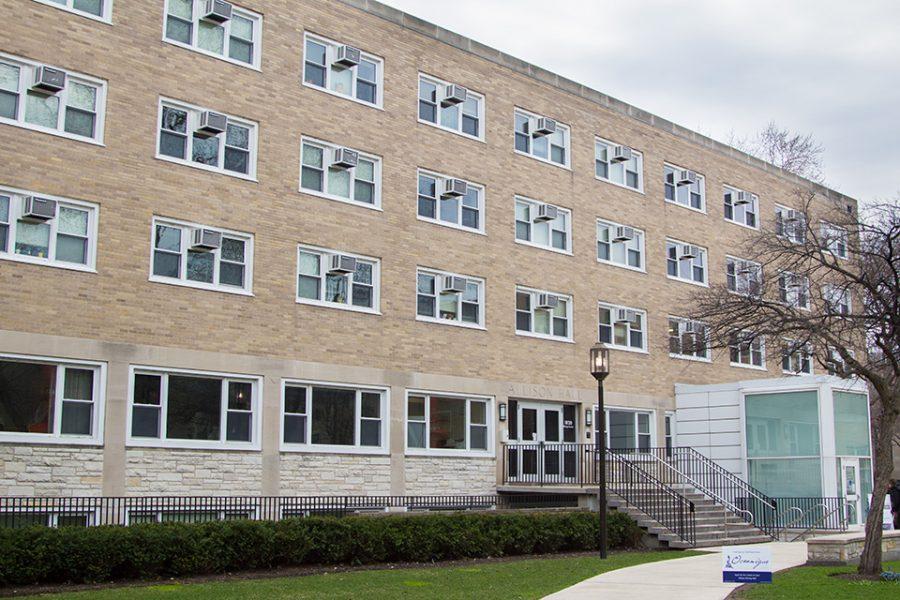Residential experience committee moves closer to submitting report
The outside of Allison Hall, which forms a “residential neighborhood” with Shepard Hall and 1838 Chicago. During seven town hall meetings last month, administrators addressed students’ concerns about the neighborhood model.
November 6, 2016
Following seven town hall meetings in October, a University committee is moving closer to finalizing a report with recommendations for improving the residential experience on campus.
The Undergraduate Residential Experience Committee will submit the report to vice president for student affairs Patricia Telles-Irvin by the end of December, said committee co-chair Paul Riel, assistant vice president for residential and dining services. The town hall meetings are only one part of the committee’s work as four subcommittees are discussing topics such as equity of experience and student-faculty interaction to produce the report, he said.
During the town hall meetings, students and administrators discussed the “neighborhood model,” which would involve creating communities among different buildings, with each residential hall or college offering specific amenities, said committee co-chair Ron Braeutigam, associate provost for undergraduate education.
The only neighborhood model currently in place is Allison Hall, 1838 Chicago and Shepard Hall. Allison offers a dining hall, Shepard offers an “engagement center” — a space that includes lounges, a demo kitchen and a meditation room — and 1838 Chicago offers a fitness center.
“The meetings were really designed to talk about the higher level plans, rather than what fees will exactly be charged, exactly how the student governance works,” he said. “Some of the meetings, I think we focused an awful lot on details, and we just don’t have answers to those things yet.”
He added that students seemed to like the idea of more faculty involvement in student residences.
Residential College Board president Dominique Mejia, a member of the committee, said there is a lot of uncertainty among students about the neighborhood model. Some students are concerned creating a residential neighborhood could lead to security issues, but Mejia said the committee clarified during the town hall meetings not all neighborhood buildings would be accessible for everyone.
“Only buildings that would actually be able to provide like an engagement center, gym or dining hall, would be accessible to everybody in the neighborhood,” the Weinberg senior said. “In terms of residential colleges that are a lot smaller or Greek housing, those would not be open to the public.”
Riel said some students were also concerned about the neighborhood model hurting the residential college structure. The committee aims to improve the residential experience for all on-campus students, including those in Greek housing, he said.
“Our thought process is we need to figure out a way to invite anyone who is residential … to be part of something larger and something more elegant than we’re currently doing,” he said. “The town halls were a nice way to talk about that and gather information and insight from students as to their impressions of the work we are doing.”
Under a neighborhood model, Riel said, students could have different experiences in intramural sports and community service. The engagement centers in each neighborhood would allow students to use meeting rooms, access fitness centers and use collaboration spaces, he said.
“There are plans for five of these across campus in the next nine years, so we believe this is the way in which you shift toward something larger and something more inclusive,” Riel said.
Email: peterkotecki2018@u.northwestern.edu
Twitter: @peterkotecki



